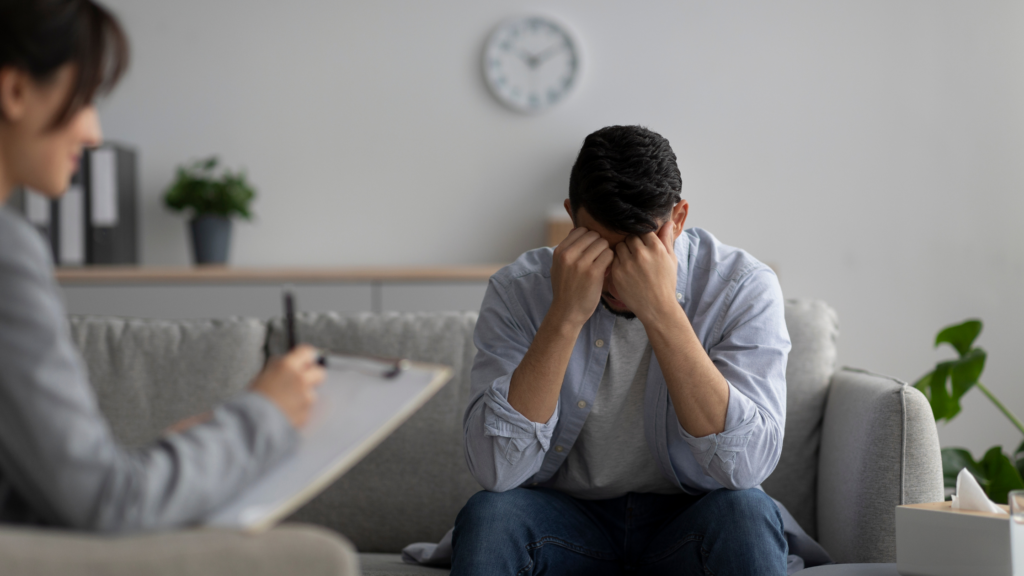Not everyone struggling with depression wants to rely on medication—and that’s okay. There are several effective, evidence-based ways to manage symptoms and improve quality of life without a prescription. Whether you’re exploring alternatives or dealing with treatment-resistant depression, creating a personalized depression treatment plan can provide clarity, structure, and support. In this article, we’ll explore what a non-medication-based plan can look like, why working with a psychiatrist still matters, and how options like therapy, lifestyle changes, and TMS therapy can help.
What Is a Depression Treatment Plan?
Developing a depression treatment plan is an integral approach to effectively managing depression. A lot of people think that a psychiatrist is available only to talk about medications, but with their medical background and extensive training in mental health, they are arguably the best positioned to offer a comprehensive depression treatment plan. This plan may include lifestyle modifications (exercise, socializing, improving sleep and nutrition), evaluating for medical explanations for depression that may be tested for and addressed (such as hypothyroidism, vitamin deficiencies, anemia, etc.), finding the most evidence-based therapy for your symptoms, and TMS or Transcranial Magnetic Stimulation.
Depression Treatment Without Medication
There can be a number of reasons people seek out depression treatment without medications. These can be wanting to avoid being on a medication to live more naturally. Some people may have been on medications in the past and experienced side effects they want to avoid. Long term data and studies on many medications are limited, so it can also be hard to commit to being on something without having a solid grasp on what the implications may be of being on that medication many years in the future. At A Better Day Psychiatry, our goal is to improve your mental health while working within the framework of how you want to address it.
Talk Therapy For Depression
Talk therapy involves working with a therapist who may follow many different types of models for therapy including CBT, interpersonal therapy, psychodynamic therapy, experiential therapy among many others. This depression treatment may be great for someone who wants to increase self-awareness and emotional regulation, work on coping skills and ways to handle stresses, and improve their relationship with themselves as well as others in their life. Some of the downsides of talk therapy may involve discomfort talking about vulnerable topics, finding a good fit with a therapist, and cost, and having the time for therapy.
Lifestyle Changes To Address Depression
Lifestyle change to address depression may involve exercise, improving sleep, eating a more balanced diet, getting outdoors, and socializing to name a few. The benefits of these may include improved mood and overall health, decreased anxiety, improved self-esteem, increased energy, and healthier coping mechanisms. Some downsides to lifestyle changes to address depression include that it can be difficult to make these changes when you are depressed and it takes a lot of motivation and energy. These changes may take you out of your comfort zone and in some cases expose you to the risk of injury. There is also a lot of conflicting information over the internet on what is the best approach and how to structure these changes, so having a mental health provider “prescribe” these in a structured and achievable way can be very helpful.
Complementary and Alternative Medicine For Depression
Complementary and alternative medicine may include acupuncture, mindfulness and meditation, art therapy, spirituality, and herbal supplements. Benefits of these approaches include that some of them have been practiced for millennia and are being increasingly studied with evidence-based medicine to prove their effectiveness. These modalities, if done with a professional and carefully, may be very safe. Some downsides of these approaches are that there are less regulations around them. For supplements, it is important to get them from a reputable source as well as to discuss them with your doctor to make sure they are not taken in excess or may interact with other medications that are being taken.
TMS Therapy For Depression
A noninvasive and very effective option for treating depression when antidepressants don’t work is TMS therapy for depression. This treatment involved delivering electromagnetic pulses over the course of a week to 6-7 weeks to the prefrontal cortex to excite the neurons in that region to treat depression. Some of the benefits of this treatment is that it is effective approach for treatment resistant depression or to treat treatment resistant depression. It is noninvasive and very safe, and it gets results superior to the results from antidepressants. The cons of TMS therapy include the time commitment, cost (depending on if it is covered by insurance) and some discomfort during treatment (though that usually resolves after 1-2 weeks if present).
Creating The Right Depression Treatment Plan For You
Scheduling an intake with one of our providers is the first step to creating a depression treatment plan that is tailored to your needs, whether that includes medications or not. Book a consultation today if you would like to learn more.

